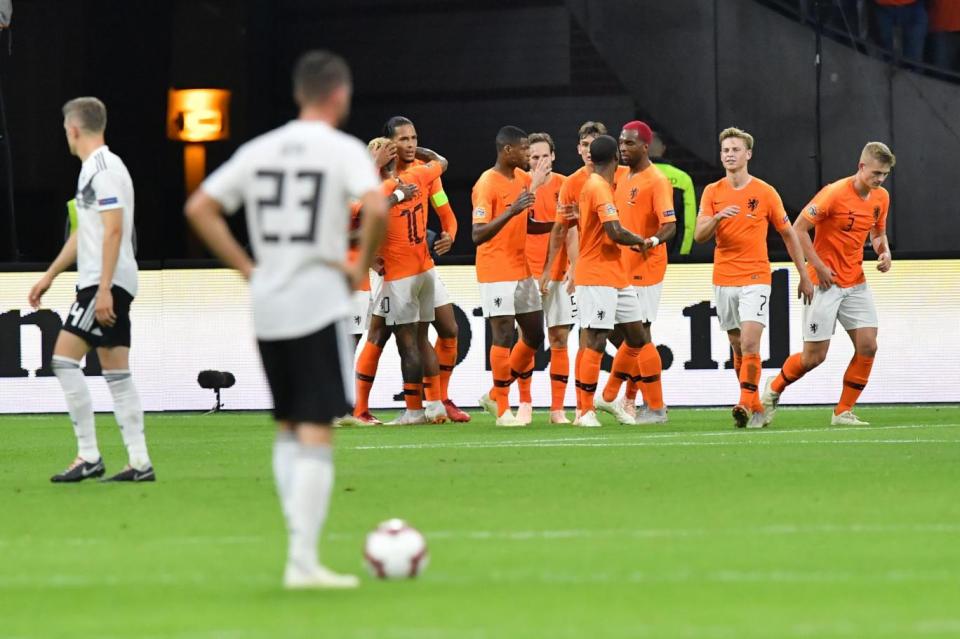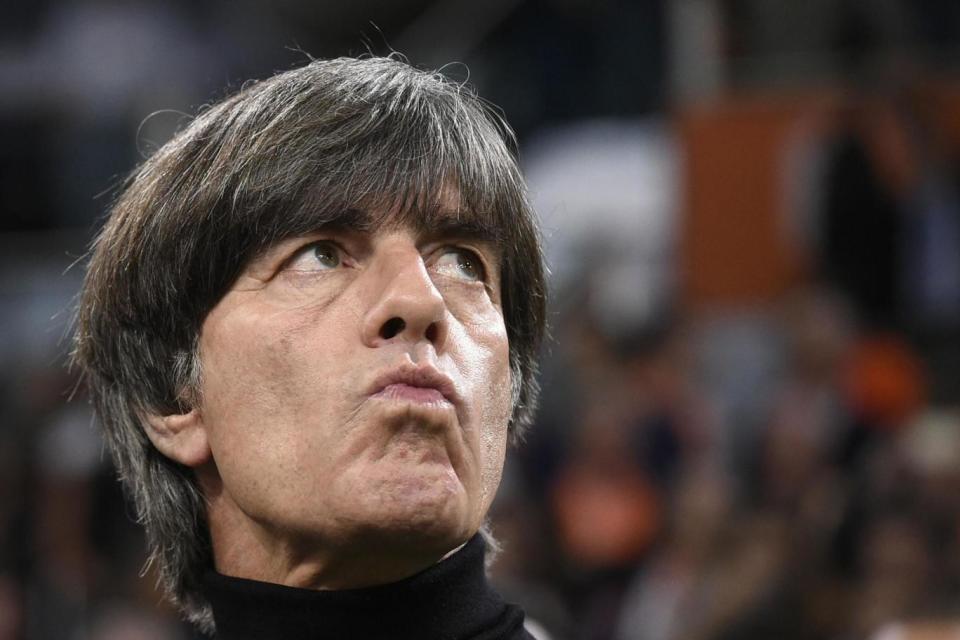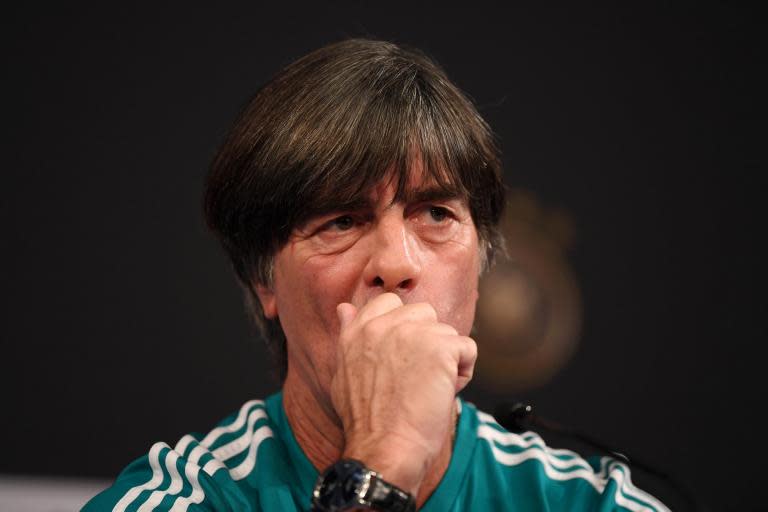All eyes on Joachim Low as he struggles to cope with Germany slump
Of all the things football supporters have to worry about, the possibility of their national team being embroiled in a relegation battle was something that most hadn’t anticipated.
The inception of the UEFA Nations League changed that, though Germany looking over their shoulders barely three months after they were deposed as world champions is even more mind-bending.
READ MORE: Rising cost of Tottenham’s stadium may force club into cuts
READ MORE: How the Spanish media reacted to England’s stunning win in Spain
Saturday’s 3-0 hammering by Holland — who were jubilant with their own return to respectability as much as putting one over their historic rivals — has left the country’s media and fans scrabbling around for reasons for their freefall.
It could still get worse. Defeat to France in front of a sell-out Stade de France crowd tonight would not quite seal relegation, but it would mean that Joachim Low’s team would be out of contention to reach June’s finals and they would be left scrapping to avoid the drop to League B, occupied by nations like Bosnia and Herzegovina, the Czech Republic and Ireland.

With little having gone right for the long-serving Low since he extended his contract to 2022 in the weeks leading up to the World Cup, his position is firmly fixed under the public microscope for the first time, “and he knows it,” as Munich-based tabloid TZ wrote following the Holland game.
If the coach seemed a little complacent before and during the debacle in Russia, he has made steps to try and put things right since.
Low has been an even more regular presence in the stands at domestic games this season, with the sense being that he wants to monitor the form of the players in contention for his squad at as close quarters as possible. He has also changed all but one of his assistants, with just Marcus Sorg staying on.
In this context, the feeling of inertia around the team is even more concerning. Germany had 21 shots and 60 per cent of possession in Amsterdam, but they never looked in control of the game.

Another Munich-based newspaper, Suddeutsche Zeitung , wrote: “The team’s problems aren’t just concentrated in attack but also in the defensive sector and in terms of moving the ball in midfield.”
If fixing this mess was as easy as sacking Low, even after 12 years of service (14 if you count his time as assistant to his predecessor Jurgen Klinsmann), then the German FA might have done it already.
But few are suggesting the 58-year-old should carry the can alone. Just as Spain’s greatest era is seen as inseparable from peak Barcelona, the German national team’s fortunes are inextricably tied up with those of Bayern Munich — and with the champions suffering in the opening weeks of the season, the connection is clear.
Thomas Muller’s ashen face at full-time in Kazan back in June, as the holders were eliminated in the World Cup group stage, has become a symbol of Germany’s annus horribilis. He has struggled, though not as much as Jerome Boateng, who looks unrecognisable from the player who was one of the best defenders at the 2014 World Cup.
He was turned inside out by Georginio Wijnaldum before the Liverpool midfielder scored the third goal on Saturday, just as Lionel Messi did in the 2015 Champions League semi-final. But this was Wijnaldum, not Messi.
Bild asked “Is the spine of Low’s 2014 world champions still the key to success?” It looks increasingly not, though the coach is struggling to accept that, brushing off calls for Barcelona’s Marc-Andre ter Stegen to replace the recently fallible goalkeeper Manuel Neuer in the build-up to the France game.
Maybe being put in their place by the new world champions would bring things to a head, underlining what Germany have lost. Yet with Thomas Tuchel and Jurgen Klopp among those already spoken for, there are few viable alternatives to Low. For a football culture associated with planning, Germany seems to be struggling for a clear next move.

 Yahoo News
Yahoo News 


